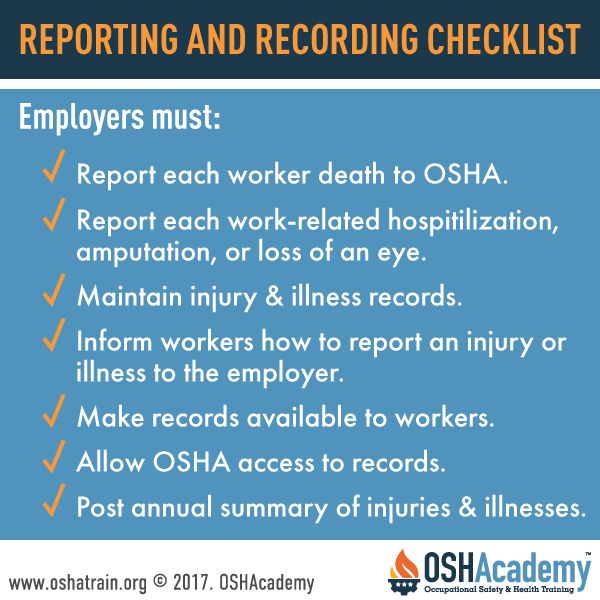Employer Responsibilities
Your employer has many responsibilities or obligations detailed within the OSH Act and other standards. OSHA's job is to protect employees, not necessarily employers.
If there is a serious accident in the workplace, OSHA will investigate to determine if the employer did not adequately meet their obligations under the law. By doing so, OSHA's ultimate goal is to protect you, the employee.
With this in mind, your employer must meet the following obligations to employees:
- Provide a workplace free from recognized hazards and comply with OSHA standards.
- Provide training required by OSHA standards.
- Keep records of injuries and illnesses.
- Set up a reporting system.
- Provide copies of logs, upon request.
- Post the annual summary.
- Report within 8 hours any accident resulting in a fatality.
- Report any work-related hospitalization, amputation or loss of an eye within 24 hours.
- Provide medical exams when required by OSHA standards and provide workers access to their exposure and medical records.
- Not discriminate against workers who exercise their rights under the Act (Section 11(c)).
- Post OSHA citations and hazard correction notices.
- Provide and pay for most PPE.
We'll discuss each of these important obligations in the next several sections. For more information about management responsibilities, see OSHAcademy courses:
- 700 Introduction to Safety Management
- 712 Safety Supervision and Leadership
- 800 Introduction to Construction Safety Management
- 900 Oil and Gas Safety Management
Knowledge Check Choose the best answer for the question.
3-1. If a fatality occurs in your workplace, how soon must you report it to OSHA?
You forgot to answer the question!

